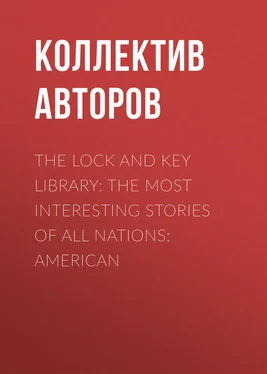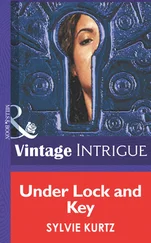Коллектив авторов - The Lock and Key Library - The most interesting stories of all nations - American
Здесь есть возможность читать онлайн «Коллектив авторов - The Lock and Key Library - The most interesting stories of all nations - American» — ознакомительный отрывок электронной книги совершенно бесплатно, а после прочтения отрывка купить полную версию. В некоторых случаях можно слушать аудио, скачать через торрент в формате fb2 и присутствует краткое содержание. Жанр: foreign_antique, foreign_prose, на английском языке. Описание произведения, (предисловие) а так же отзывы посетителей доступны на портале библиотеки ЛибКат.
- Название:The Lock and Key Library: The most interesting stories of all nations: American
- Автор:
- Жанр:
- Год:неизвестен
- ISBN:нет данных
- Рейтинг книги:5 / 5. Голосов: 1
-
Избранное:Добавить в избранное
- Отзывы:
-
Ваша оценка:
- 100
- 1
- 2
- 3
- 4
- 5
The Lock and Key Library: The most interesting stories of all nations: American: краткое содержание, описание и аннотация
Предлагаем к чтению аннотацию, описание, краткое содержание или предисловие (зависит от того, что написал сам автор книги «The Lock and Key Library: The most interesting stories of all nations: American»). Если вы не нашли необходимую информацию о книге — напишите в комментариях, мы постараемся отыскать её.
The Lock and Key Library: The most interesting stories of all nations: American — читать онлайн ознакомительный отрывок
Ниже представлен текст книги, разбитый по страницам. Система сохранения места последней прочитанной страницы, позволяет с удобством читать онлайн бесплатно книгу «The Lock and Key Library: The most interesting stories of all nations: American», без необходимости каждый раз заново искать на чём Вы остановились. Поставьте закладку, и сможете в любой момент перейти на страницу, на которой закончили чтение.
Интервал:
Закладка:
"What are you going to do?" inquired Rebecca agitatedly.
"I am going to see what he is about," replied Mrs. Brigham cautiously.
She pointed as she spoke to the study door across the hall; it was ajar. Henry had striven to pull it together behind him, but it had somehow swollen beyond the limit with curious speed. It was still ajar and a streak of light showed from top to bottom. The hall lamp was not lit.
"You had better stay where you are," said Caroline with guarded sharpness.
"I am going to see," repeated Mrs. Brigham firmly.
Then she folded her skirts so tightly that her bulk with its swelling curves was revealed in a black silk sheath, and she went with a slow toddle across the hall to the study door. She stood there, her eye at the crack.
In the south room Rebecca stopped sewing and sat watching with dilated eyes. Caroline sewed steadily. What Mrs. Brigham, standing at the crack in the study door, saw was this:
Henry Glynn, evidently reasoning that the source of the strange shadow must be between the table on which the lamp stood and the wall, was making systematic passes and thrusts all over and through the intervening space with an old sword which had belonged to his father. Not an inch was left unpierced. He seemed to have divided the space into mathematical sections. He brandished the sword with a sort of cold fury and calculation; the blade gave out flashes of light, the shadow remained unmoved. Mrs. Brigham, watching, felt herself cold with horror.
Finally Henry ceased and stood with the sword in hand and raised as if to strike, surveying the shadow on the wall threateningly. Mrs. Brigham toddled back across the hall and shut the south room door behind her before she related what she had seen.
"He looked like a demon!" she said again. "Have you got any of that old wine in the house, Caroline? I don't feel as if I could stand much more."
Indeed, she looked overcome. Her handsome placid face was worn and strained and pale.
"Yes, there's plenty," said Caroline; "you can have some when you go to bed."
"I think we had all better take some," said Mrs. Brigham. "Oh, my
God, Caroline, what – "
"Don't ask and don't speak," said Caroline.
"No, I am not going to," replied Mrs. Brigham; "but – "
Rebecca moaned aloud.
"What are you doing that for?" asked Caroline harshly.
"Poor Edward," returned Rebecca.
"That is all you have to groan for," said Caroline. "There is nothing else."
"I am going to bed," said Mrs. Brigham. "I sha'n't be able to be at the funeral if I don't."
Soon the three sisters went to their chambers and the south parlor was deserted. Caroline called to Henry in the study to put out the light before he came upstairs. They had been gone about an hour when he came into the room bringing the lamp which had stood in the study. He set it on the table and waited a few minutes, pacing up and down. His face was terrible, his fair complexion showed livid; his blue eyes seemed dark blanks of awful reflections.
Then he took the lamp up and returned to the library. He set the lamp on the centre table, and the shadow sprang out on the wall. Again he studied the furniture and moved it about, but deliberately, with none of his former frenzy. Nothing affected the shadow. Then he returned to the south room with the lamp and again waited. Again he returned to the study and placed the lamp on the table, and the shadow sprang out upon the wall. It was midnight before he went upstairs. Mrs. Brigham and the other sisters, who could not sleep, heard him.
The next day was the funeral. That evening the family sat in the south room. Some relatives were with them. Nobody entered the study until Henry carried a lamp in there after the others had retired for the night. He saw again the shadow on the wall leap to an awful life before the light.
The next morning at breakfast Henry Glynn announced that he had to go to the city for three days. The sisters looked at him with surprise. He very seldom left home, and just now his practice had been neglected on account of Edward's death. He was a physician.
"How can you leave your patients now?" asked Mrs. Brigham wonderingly.
"I don't know how to, but there is no other way," replied Henry easily. "I have had a telegram from Doctor Mitford."
"Consultation?" inquired Mrs. Brigham.
"I have business," replied Henry.
Doctor Mitford was an old classmate of his who lived in a neighboring city and who occasionally called upon him in the case of a consultation.
After he had gone Mrs. Brigham said to Caroline that after all
Henry had not said that he was going to consult with Doctor
Mitford, and she thought it very strange.
"Everything is very strange," said Rebecca with a shudder.
"What do you mean?" inquired Caroline sharply.
"Nothing," replied Rebecca.
Nobody entered the library that day, nor the next, nor the next. The third day Henry was expected home, but he did not arrive and the last train from the city had come.
"I call it pretty queer work," said Mrs. Brigham. "The idea of a doctor leaving his patients for three days anyhow, at such a time as this, and I know he has some very sick ones; he said so. And the idea of a consultation lasting three days! There is no sense in it, and NOW he has not come. I don't understand it, for my part."
"I don't either," said Rebecca.
They were all in the south parlor. There was no light in the study opposite, and the door was ajar.
Presently Mrs. Brigham rose – she could not have told why; something seemed to impel her, some will outside her own. She went out of the room, again wrapping her rustling skirts around that she might pass noiselessly, and began pushing at the swollen door of the study.
"She has not got any lamp," said Rebecca in a shaking voice.
Caroline, who was writing letters, rose again, took a lamp (there were two in the room) and followed her sister. Rebecca had risen, but she stood trembling, not venturing to follow.
The doorbell rang, but the others did not hear it; it was on the south door on the other side of the house from the study. Rebecca, after hesitating until the bell rang the second time, went to the door; she remembered that the servant was out.
Caroline and her sister Emma entered the study. Caroline set the lamp on the table. They looked at the wall. "Oh, my God," gasped Mrs. Brigham, "there are – there are TWO – shadows." The sisters stood clutching each other, staring at the awful things on the wall. Then Rebecca came in, staggering, with a telegram in her hand. "Here is – a telegram," she gasped. "Henry is – dead."
Melville Davisson Post
Introduction to The Corpus Delicti
The high ground of the field of crime has not been explored; it has not even been entered. The book stalls have been filled to weariness with tales based upon plans whereby the DETECTIVE, or FERRETING power of the State might be baffled. But, prodigious marvel! no writer has attempted to construct tales based upon plans whereby the PUNISHING power of the State might be baffled.
The distinction, if one pauses for a moment to consider it, is striking. It is possible, even easy, deliberately to plan crimes so that the criminal agent and the criminal agency cannot be detected. Is it possible to plan and execute wrongs in such a manner that they will have all the effect and all the resulting profit of desperate crimes and yet not be crimes before the law?
We are prone to forget that the law is no perfect structure, that it is simply the result of human labor and human genius, and that whatever laws human ingenuity can create for the protection of men, those same laws human ingenuity can evade. The Spirit of Evil is no dwarf; he has developed equally with the Spirit of Good.
Читать дальшеИнтервал:
Закладка:
Похожие книги на «The Lock and Key Library: The most interesting stories of all nations: American»
Представляем Вашему вниманию похожие книги на «The Lock and Key Library: The most interesting stories of all nations: American» списком для выбора. Мы отобрали схожую по названию и смыслу литературу в надежде предоставить читателям больше вариантов отыскать новые, интересные, ещё непрочитанные произведения.
Обсуждение, отзывы о книге «The Lock and Key Library: The most interesting stories of all nations: American» и просто собственные мнения читателей. Оставьте ваши комментарии, напишите, что Вы думаете о произведении, его смысле или главных героях. Укажите что конкретно понравилось, а что нет, и почему Вы так считаете.












